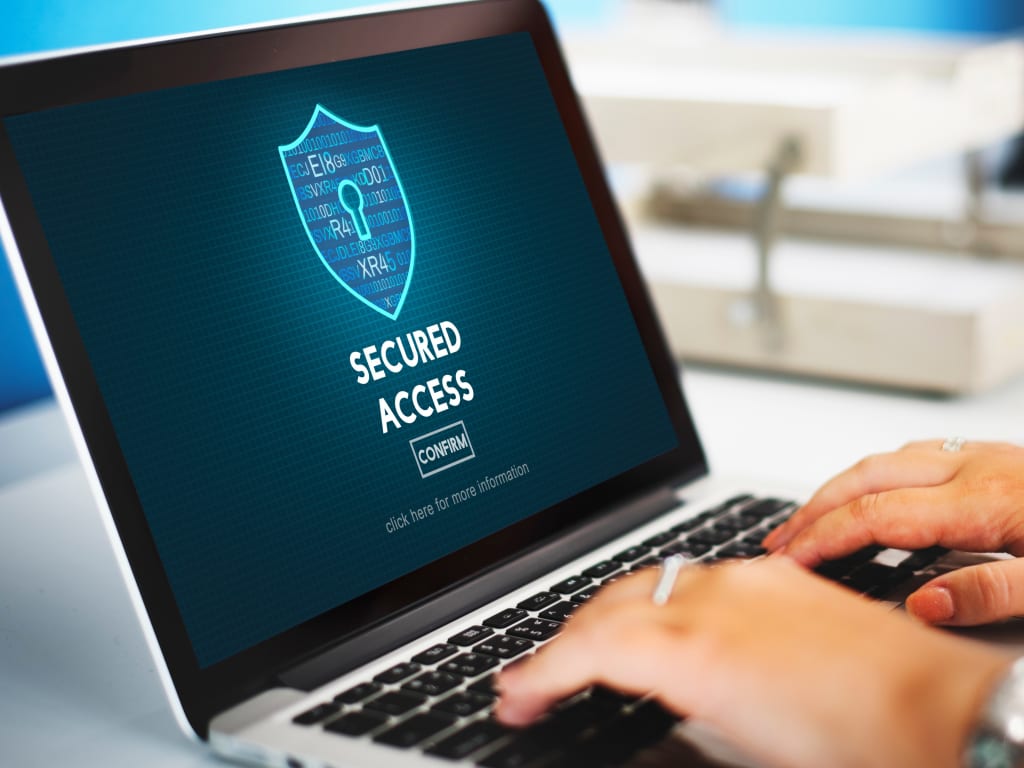
Because of the growing prevalence of cyber threats, the federal government of the United States has established a research and development division with the goal of developing a strategy to reduce potential hazards in cyberspace through the development of technology and the creation of legislation.
People are releasing more personal information online as a result of the surge in social media usage, which makes it more challenging to protect sensitive data. Fortunately, there are numerous ways to Protect Your Identity Online and sensitive information.
Here Are the Top Ten Strategies to Stay Safe Online:
1. Use Strong Passwords
The most common way to secure your online identity is to focus on creating strong passwords. When choosing one, choose a password that won't be easily cracked or decoded. Never give your first, middle, or last name, the name of your spouse or child, your home or workplace address, phone number, or any other personal information. To guard against online security breaches, mix up the letters and numbers in your password, include symbols, and, if at all possible, use a combination of upper- and lowercase numerals. Your passwords may need to be changed a few times a year.
2. Look for Encryption
Look for signs that the website is encrypted before performing any kind of online financial transaction. To do this, look for two elements in the URL or web address bar: the trusted security lock icons, and the extra "s" following HTTP. When you are on the page that asks for your credit card information, the "HTTP" changes to "HTTP," even though the website is secure. A lock symbol will also appear at the same moment, either on the right side of the address bar or at the bottom left of your browser window. These two indicators show that the website is encrypted, ensuring that no one can see the data as it is sent to the website owner. This prevents anyone else from seeing your name, phone number, address, credit card number, and other important information.
3. Install Security Suites
Security suites are tools that prevent malicious software and persons from infecting your computer and stealing your information. This includes preventing harmful software, such as malware, viruses, and phishing schemes, from being stealthily installed while you are online. Among the well-known security suites are Norton Antivirus, McAfee Virus Protection, Ad-Aware Pro Protection, and AVG Internet Protection. Make sure to purchase and install one of these suites to Protect Your Identity Online
4. Turn on Web Browser Blacklisting
The use of the internet browser is partially to blame for the lack of internet security. Blacklisting is one of the additional security tools that many online browsers offer. You can then define the criteria for the websites you visit; only trustworthy, secure websites will be available.
5. Avoid Phishing Scams
Phishing tactics employ a variety of methods to obtain your personal information and steal your identity. There are many different types of phishing scams, but they may all be avoided if you know how to recognize them. If you want to avoid falling for a phishing scam, never accept attachments in emails from strangers and avoid clicking on dubious links in strange emails. Avoid anyone who offers you a job, and asks you to donate to a cause, or begs you for money since they can be attempting to obtain your personal information and online identity.
6. Get Private Data Protection
A further method to Protect Your Identity Online and sensitive information when sharing it online is to obtain private data protection. This type of security package will safeguard any private information that is contained in emails, private messaging applications, social media sites, or even blogs. You can further block hackers' attempts to get your personal information by using a private data protection suite.
7. Password-Protect Your Wireless Router
Always use a password to secure any wireless router that connects to the internet at your residence or place of business. Without a password, anyone in your wireless network's range, including hackers, can use and access your internet. A skilled hacker who has committed cybercrimes before would take advantage of this and gain access to your router while stealing data from your PC. To better Protect Your Identity Online, you should also engage the wireless router's encryption option, which scrambles any data you send online.
8. Hide Your Personal Information
Your personal information could unknowingly be shared with others if your web browser is improperly configured. When you download and install a new one, you can set it up like a new computer or browser. To do this, go to the "set-up" menu in your browser and choose the option to hide your name, email address, or other personal information. Make sure to take this extra step when downloading or installing a browser to safeguard your security and privacy.
9. only Enable Cookies when Necessary in Your Web Browser
Additionally, you may set your browser to only accept cookies when they are required by a website in order to safeguard your online data. These cookies are comprehensive websites that are saved on your computer and include details about the websites you visit and the activities you carry out there. It's a way for dishonest people to get your information, even though the majority of them keep it to themselves. You wish to enable cookies, but only for the websites that need them.






Comments
There are no comments for this story
Be the first to respond and start the conversation.